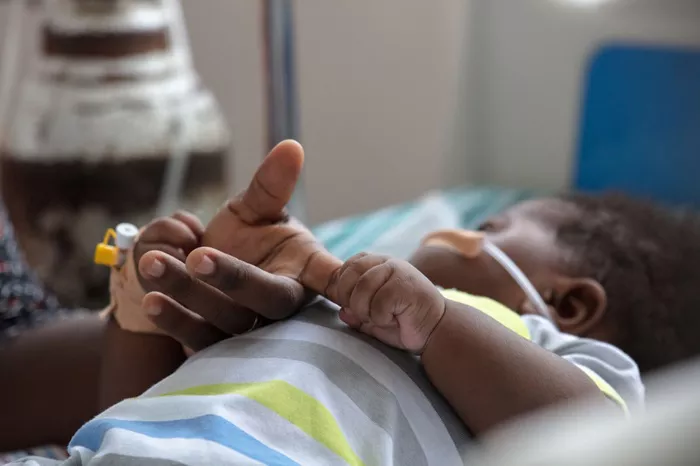A juror who was part of the trial that convicted an autistic death row inmate has told Texas lawmakers she now believes he is innocent and that his life should be saved.
The juror, Terre Compton, shared her thoughts during a hearing before the Texas House of Representatives Committee on Criminal Jurisprudence on Monday. However, 57-year-old inmate Robert Roberson was unable to attend in person. He was blocked from testifying by the Texas Attorney General’s Office, which allowed only a virtual appearance, despite the committee’s subpoena issued the night before his scheduled execution. Roberson is currently housed at the Allan B. Polunsky Unit in Livingston.
In 2003, Roberson was convicted of capital murder for the death of his two-year-old daughter, Nikki Curtis, who died in 2002. Prosecutors claimed Roberson caused her death through shaking and blunt-force trauma, leading to what is known as “shaken baby syndrome.” Throughout the trial, Roberson maintained his innocence. Recent medical opinions suggest that Nikki died from severe undiagnosed pneumonia, which progressed to sepsis.
Compton revealed that the jury was not informed of Nikki’s medical history. She expressed that had she known the details, she would have found Roberson “not guilty.”
During the same hearing, Dr. Phil McGraw, a well-known TV doctor, stated he is “100 percent” certain that executing Roberson would result in a miscarriage of justice. He highlighted that the hearing aimed to raise awareness about Roberson’s case and does not have the authority to prevent his execution. McGraw, who holds a doctorate in clinical psychology and has interviewed Roberson in prison, asserted, “I do not believe that Mr. Roberson has had due process in this case.” He emphasized that there was no crime committed.
McGraw questioned how crucial evidence about Nikki’s medical history was overlooked during the trial. He stated, “If we are going to deprive someone of their life, that comes at a very high standard of proof and evidence.”
Roberson’s execution was initially set for Thursday but was postponed after lawmakers issued the subpoena as part of a hearing regarding the application of Article 11.073, a state law addressing the use of unreliable scientific evidence in court. Lawmakers, Roberson’s attorneys, and McGraw argue that this law has not been applied as intended.
The Texas Attorney General’s Office recently announced it would allow Roberson to testify via Zoom, defying the subpoena, which required mutual agreement for alternative arrangements. Roberson declined to appear virtually, citing concerns related to his autism spectrum disorder and lack of experience with Zoom. His attorneys argued that this would deny him proper legal representation.
Last week, during a district court hearing, the attorney general’s office acknowledged the validity of the subpoena.
The Texas Board of Pardons and Paroles denied Roberson’s clemency request on Wednesday. Following this, a bipartisan group of lawmakers issued the subpoena, prompting a Travis County judge to temporarily halt the execution. In a swift response, the Texas Attorney General’s Office appealed to ensure the execution would proceed. The state criminal appeals court initially lifted the restraining order but faced another appeal from lawmakers to the Texas Supreme Court, which ultimately granted a stay of execution.
The U.S. Supreme Court declined to intervene in the matter. Texas Governor Greg Abbott, who has the sole authority to grant a 30-day reprieve, had not commented until Monday. He requested the Texas Supreme Court to dismiss the subpoena, arguing that the power to grant clemency belongs exclusively to the governor. He stated that the committee had overstepped its boundaries.
“If the House Committee on Criminal Jurisprudence believes it can demand testimony from a death row inmate, it could have done so without undermining the governor’s authority,” Abbott wrote.
The governor’s letter supports a motion filed by the attorney general’s office, which requests that the court reverse its decision allowing Roberson to testify. The court is currently reviewing further details on this issue.
Former appeals court judge Elsa Alcala noted during the hearing that the appeals court might decide to reopen Roberson’s case independently. The Anderson County District Attorney can now request a new execution date, which would provide Roberson’s attorneys with approximately three months’ notice, as required by Texas law.
If carried out, Roberson would be the first person in the U.S. to be executed for a crime related to “shaken baby syndrome,” a diagnosis that has been discredited by many medical experts. Just days before Nikki’s death, Roberson took her to the emergency room for respiratory issues, where she was prescribed medication. The next day, she developed a high fever.
Roberson later discovered Nikki unresponsive on the floor and rushed her to the hospital, but she had already suffered significant brain damage. Medical records indicate that hospital officials removed her from life support without consulting him, despite Roberson having sole custody.
Medical professionals at the hospital found symptoms consistent with shaken baby syndrome, typically diagnosed with certain physical indicators. However, it is now understood that other medical issues can present similar symptoms.
Compton shared her emotional response to the situation, revealing that she was heartbroken upon learning of Roberson’s execution date. “I literally, in my eyes, was killing a man that I knew was innocent and I was gonna have to live with that,” she said, expressing frustration over recent statements from the attorney general’s office.
During his testimony, McGraw recounted his direct conversation with Roberson about whether he harmed Nikki. Roberson firmly denied any wrongdoing.
Related Topics:


